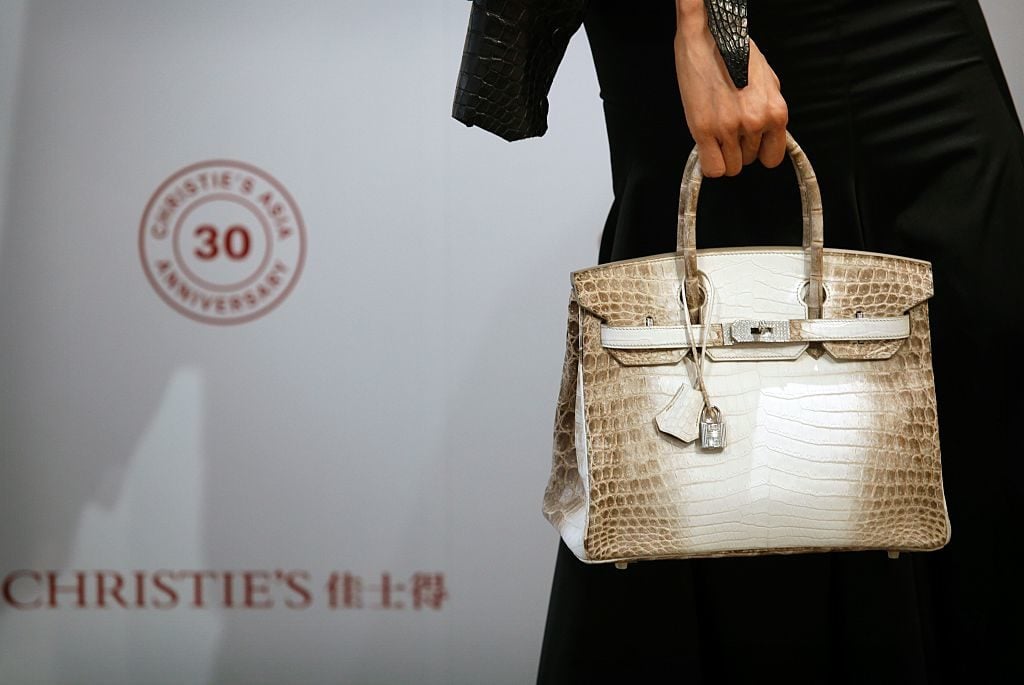Law & Politics
Heritage Auctions Claims Christie’s Snatched Its Purse Experts. Now, the Case Is Going to Court
The case reveals intense competition in the luxury handbag market.

The case reveals intense competition in the luxury handbag market.

Call it the case of the purloined purse experts.
Auction houses may be best known for selling Picasso and Basquiat paintings for astronomical sums. But a lawsuit currently winding its way through New York state court shows just how lucrative and competitive a niche market—specifically, the market for vintage Chanel, Louis Vuitton, and Hermès handbags—can be.
In a legal dispute that has been dubbed “handbag-gate,” Dallas-based Heritage Auctions sued Christie’s in late 2014 for breach of contract and theft of trade secrets after it poached three key members of Heritage’s luxury goods team. Heritage claims that Christie’s induced the head of the department, Matthew Rubinger, and fellow staff members Rachel Koffsky and Caitlin Donovan to “breach their respective employment contracts and engage in unfair business practices,” according to court papers.
Yesterday, a New York State Supreme Court judge rejected Heritage’s $40 million request for summary judgement, but allowed certain claims to proceed to trial. Judge Andrea Masley said that Rubinger may have violated the non-compete clause in his contract with Heritage when he jumped ship to Christie’s. She also allowed the claim that Christie’s “tortiously interfered” with Rubinger’s contract with Heritage to proceed. But she dismissed the claim that his two associates breached their duty to the Dallas auction house when they switched jobs.
The judge’s sometimes highly specific rationale for allowing or dismissing certain claims reflects the cutthroat nature of this competitive industry. The financial stakes are high: This past December, Christie’s notched a record $117,000 at a Paris sale for a Birkin leather bag.
Christie’s had argued that Rubinger should not be held liable for violating the noncompete clause in his contract because he was working at Christie’s Hong Kong office, far away from New York, where the clause could be enforced. But Masley was not convinced.
Because of the nature of the auction business in the current internet age, it can’t be said “that you must be present in North America to affect commerce in North America,” she wrote. Whether the noncompete was breached “is a triable issue of fact that cannot be determined on this motion.”
In a win for Christie’s, Masley determined that Rubinger did not breach a “non-solicitation” covenant in his contract when he convinced Koffsky and Donovan to decamp to Christie’s with him. The judge determined that the clause would only have applied if Rubinger had recruited them after his departure. But by Heritage’s own account, they all resigned on the same morning in May 2014, according to court documents.
A pre-trial conference has been scheduled for March 8. In the meantime, both sides are spinning the ruling as a win.
“Christie’s is very pleased with the Court’s decision on the parties’ motions today and looks forward to the complete resolution of this case on the merits in the future,” a Christie’s representative told artnet News.
Heritage’s attorney, Armen Vartian, told artnet News: “The judge ruled that Heritage’s two-year non-compete agreement with its former Director of Luxury Accessories is valid and enforceable, and that Christie’s did not escape liability simply by moving him from New York to Hong Kong. She left for trial the questions of the extent to which he violated the non-compete, as well as the amount of damages caused to Heritage.”